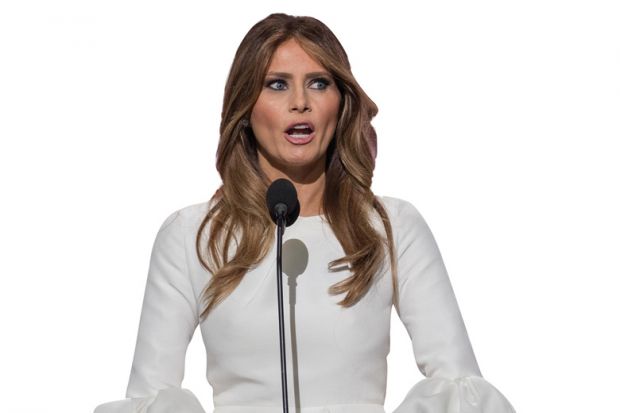The furore that has erupted over recent days in respect of Melania Trump’s supposed plagiarising of a speech by Michelle Obama brings to the surface – albeit in an unexpected arena – issues relating to copying, intellectual property, integrity and original thought.
Within hours of her speech, which headlined the Republican National Convention's opening night in Cleveland, Ohio, Melania Trump faced accusations of having “stolen”, “nearly word-for-word”, passages from a speech given by Michelle Obama at the Democratic National Convention in 2008 (video below).
The catalyst for the ensuing social media hysteria was a tweet by one Jarrett Hill (@JarrettHill), an out-of-work journalist, who initially tweeted, “OMG. Melania. That was literally a whole line from Michelle Obama 2012” [sic], and later, “CORRECTION: Melania stole a whole graph from Michelle's speech” – along with this tweet:
Melania must’ve liked Michelle Obama’s 2008 Convention speech, since she plagiarized it.#GOPConvention #RNCinCLE pic.twitter.com/vGmsG9KFx3
— Jarrett Hill (@JarrettHill) July 19, 2016
By the time Hill was being interviewed by Californian broadcaster, KTLA, tweets and retweets had transformed Melania Trump into a serial cribber and plagiariser, with calls for her presumed speech-writer to be sacked.
Meanwhile, New Jersey governor and former federal prosecutor Chris Christie was defending Ms Trump on the NBC Today show, on the grounds that “93 per cent of the speech is completely different than Michelle Obama's”. Here's how one philosophy professor at Wilfrid Laurier University responded:
Hey students! Chris Christie come to the rescue. 7% is not plagiarism. https://t.co/lgDPrFQKpE
— Renato Cristi (@rcristibeck) July 19, 2016
So, what are we to make of this chain of events? Did Melania Trump "rip off" Michelle Obama? Did her speech-writer plagiarise Ms Obama’s? Should we even be concerned about this, given the context and setting?
Commentators have pointed out in Ms Trump's defence that while some passages within her speech contained themes and words present in Ms Obama’s 2008 speech, the vast majority of what was a 10-minute speech was very different. In academia, we have to judge the scale of alleged plagiarism to determine whether there is “a case to answer” – would we deem such a small proportion of the “artefact” to be indicative of academic misconduct?
Others have pointed to the very generic, arguably widely held, themes alluded to in both speeches and rightly ask how many different ways there are to highlight – especially in US society – the importance of hard work, honesty, sincerity, trust, respect and the like. Might people quite conceivably accuse Michelle Obama of herself plagiarising generations of previous First Ladies-in-waiting, all of whom extolled in similar glowing tones their values and those of their spouse?
Intellectual property is of course important, as is the practice of appropriately citing sources. These values – and the techniques and practices needed to evidence them – are embedded within academic life.
Whether this case amounts to plagiarism, however, is highly debatable. Should Melania Trump have paid homage to the current First Lady? – after all, “imitation”, as Charles Colton once said, “is the sincerest [form] of flattery”. Perhaps.
Whether a Republican Convention is the place to do this, however, is an entirely different question.
Mark Ridolfo is a principal academic at Bournemouth University.
Video: Melania Trump (2016) vs Michelle Obama (2008)
Write for us
If you are interested in blogging for us, please email chris.parr@tesglobal.com
后记
Print headline: Melania Trump’s convention speech: plagiarism, flattery or original thought?




